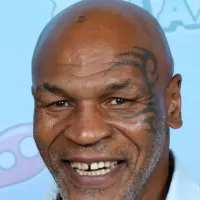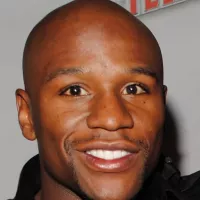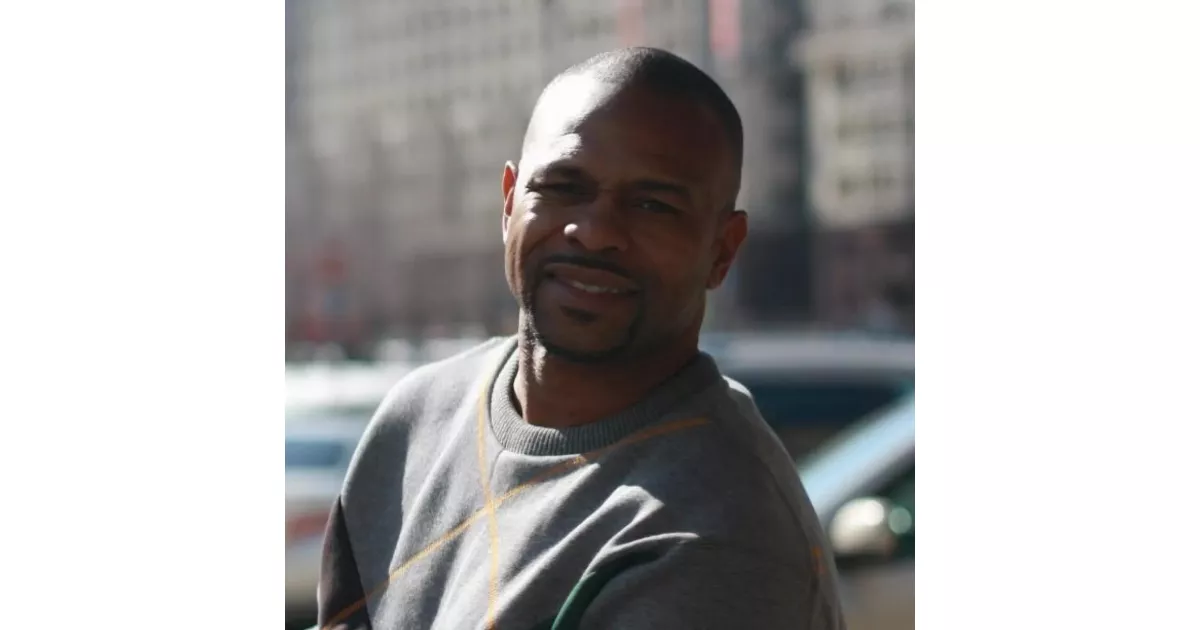Roy Jones Jr. is an American former professional boxer renowned for his exceptional athleticism and versatility. He achieved world championships in four different weight divisions: middleweight, super middleweight, light heavyweight, and heavyweight. Representing the United States as an amateur, he secured a silver medal in the light middleweight division at the 1988 Summer Olympics. Jones was known for his unorthodox style, speed, and power, solidifying his legacy as one of boxing's most dynamic and celebrated fighters.
January 16, 1969: Roy Jones Jr. born
On January 16, 1969, Roy Levesta Jones Jr. was born. He later became a professional boxer, winning world championships in four weight classes.
1983: Spinks unifies light heavyweight titles
On June 5, 1999, Jones became the undisputed light heavyweight champion, unifying the WBA, WBC, and IBF titles, a feat last achieved by Michael Spinks in 1983.
1984: United States National Junior Olympics
In 1984, Roy Jones Jr. won the United States National Junior Olympics in the 119 lb weight division, showcasing his early talent.
1985: Spinks claims Heavyweight Championship
On March 1, 2003, Jones became the second reigning light heavyweight champion after Michael Spinks in 1985 to move up in weight and claim a major heavyweight championship in his first fight in the division.
1986: United States National Golden Gloves
In 1986, Roy Jones Jr. won the United States National Golden Gloves in the 139 lb division, marking another significant achievement in his amateur career.
1987: United States National Golden Gloves
In 1987, Roy Jones Jr. won the United States National Golden Gloves in the 156 lb division, further solidifying his reputation as a top amateur boxer.
1988: Seoul Olympic Games
In 1988, Roy Jones Jr. represented the United States at the Seoul Olympic Games in the 156-pound weight class, where he won the silver medal.
1988: 1988 Summer Olympics
In 1988, Roy Jones Jr. represented the United States at the Summer Olympics. He won a silver medal in the light middleweight division.
1988: Val Barker trophy
In 1988, Roy Jones was awarded the Val Barker trophy as the best stylistic boxer of the 1988 games. This was only the third time when the award did not go to one of the gold medal winners.
May 6, 1989: Professional Debut
On May 6, 1989, Roy Jones Jr. made his professional boxing debut, knocking out Ricky Randall in two rounds in Pensacola.
January 10, 1992: Knockout win against Jorge Vaca
On January 10, 1992, Roy Jones Jr. knocked out former World Welterweight Champion Jorge Vaca in round one of a Pay Per View fight.
May 22, 1993: IBF Middleweight Championship
On May 22, 1993, Roy Jones Jr. captured the IBF middleweight championship by defeating Bernard Hopkins via unanimous decision in Washington, D.C.
November 18, 1994: Fight against James Toney
On November 18, 1994, Roy Jones Jr. faced undefeated IBF super middleweight Champion James Toney in a highly anticipated PPV fight, where Jones was the underdog for the first time in his career.
1994: Continued success in 1994
In 1994, Roy Jones Jr. beat Danny "Popeye" Garcia by knockout in six, then retained his IBF title against Thomas Tate in two rounds at Las Vegas on May 27.
1994: The Ring magazine Fighter of the Year
In 1994, The Ring magazine named Roy Jones Jr. as the Fighter of the Year, recognizing his exceptional performance in boxing.
1995: Successful Super Middleweight Title Defenses
In 1995, Roy Jones Jr. defended his super middleweight title multiple times, including a first-round knockout of Antoine Byrd and a victory over Vinny Pazienza in a fight billed as 'The Devil & Mr Jones'.
November 1996: Wins Interim WBC Light Heavyweight Title
In November 1996, Roy Jones Jr. defeated Mike McCallum via decision to win the vacant Interim WBC Light Heavyweight title in Tampa, Florida.
1996: Continued Winning Streak and Multi-Sport Participation
In 1996, Roy Jones Jr. continued his winning ways, defeating Merqui Sosa and Eric Lucas. He also became the first athlete to participate in two paid sports events on the same day, playing basketball and defending his boxing title.
1996: Best Boxer ESPY Award
In 1996, Roy Jones Jr. won the Best Boxer ESPY Award, recognizing his achievements in the sport.
1996: U.S. Olympic Committee calls for investigation
In 1996, the U.S. Olympic Committee called for an investigation after documents revealed reports of judges being paid to vote for South Korean boxers in the Seoul Olympics.
September 1997: Del Valle wins WBA belt
Lou Del Valle, a former sparring partner to Jones, won the WBA belt in September 1997, vacating the Lineal champion Dariusz Michalczewski.
1997: First Professional Loss
In 1997, Roy Jones Jr. suffered his first professional loss via disqualification against Montell Griffin due to hitting him while he was down.
1997: IOC investigation conclusion
In 1997, an official IOC investigation concluded that there was no evidence of corruption in the boxing events at the 1988 Seoul Olympics, despite judges being treated by South Korean organizers.
November 1999: Rocchigiani match canceled
In November 1999, a match with Graciano Rocchigiani was scheduled but later canceled by Jones' promoter after Rocchigiani missed a press conference. Subsequently, the WBC stripped Rocchigiani of his title.
1999: Undisputed Light Heavyweight Champion
From 1999 to 2002, Roy Jones Jr. held the undisputed championship at light heavyweight, solidifying his dominance in the division.
1999: Frazier knockout
In 1999 Roy Jones knocked out Rick Frazier, who was the WBC number one ranked contender at the time.
2000: Title Retentions and Unique Venue Fights
In 2000, Roy Jones Jr. started the year by defeating David Telesco at Radio City Music Hall, marking the venue's first fight. He also retained his title against Richard Hall at Conseco Fieldhouse and Eric Harding in New Orleans.
2000: Best Boxer ESPY Award
In 2000, Roy Jones Jr. was awarded the Best Boxer ESPY Award, acknowledging his continued success in boxing.
November 2001: WBF light heavyweight title
In November 2001 Roy Jones was awarded the World Boxing Federation's light heavyweight title.
2001: Debut of "Round One: The Album"
In 2001, Roy Jones Jr. started his rap music career with his album "Round One: The Album" and the debut single, "Y'All Must've Forgot".
2002: Undisputed Light Heavyweight Champion
From 1999 to 2002, Roy Jones Jr. held the undisputed championship at light heavyweight, solidifying his dominance in the division.
2002: Title Retention against Glen Kelly
In 2002, Roy Jones Jr. retained his title by knocking out Glen Kelly in seven rounds. Before the bout, Jones was awarded The Ring Championship belt.
March 1, 2003: WBA Heavyweight Title Win
On March 1, 2003, Roy Jones Jr. defeated John Ruiz for the WBA Heavyweight title, becoming the first former middleweight champion to win a Heavyweight title in 106 years.
November 8, 2003: Defeats Antonio Tarver
On November 8, 2003, Roy Jones Jr. defeated Antonio Tarver to retain the IBO and The Ring Light Heavyweight Championships, win Tarver's WBC title, and win the vacant WBA (Unified) title by majority decision.
2003: WBA Heavyweight Title
In 2003, Roy Jones Jr. made history by winning the World Boxing Association (WBA) heavyweight title. He became the first former middleweight champion to achieve this feat in 106 years.
2003: World Boxing Hall of Fame Fighter of the Year and Best Boxer ESPY Award
In 2003, Roy Jones Jr. was named the Fighter of the Year by the World Boxing Hall of Fame. He also won the Best Boxer ESPY Award. This was his third time winning the ESPY, after previous wins in 1996 and 2000.
May 15, 2004: Loss to Antonio Tarver
On May 15, 2004, Roy Jones Jr. faced Antonio Tarver in a rematch, where Jones was heavily favored. Tarver knocked Jones down in the second round, resulting in Jones being ruled unable to continue, marking his first career loss due to inability to continue.
May 2004: Record Since May 2004
In May 2004, Roy Jones Jr. had a record of 5-5 in his previous ten bouts.
September 25, 2004: Loss to Glen Johnson
On September 25, 2004, Roy Jones Jr. fought Glen Johnson for the IBF light heavyweight title in Memphis, Tennessee. Johnson knocked out Jones in the ninth round, leaving Jones on the canvas for three minutes.
2004: Glen Johnson's knockout against Jones
In 2004, Glen Johnson knocked out Roy Jones Jr.
2004: Formation of Body Head Bangerz
In 2004, Roy Jones Jr. formed the group Body Head Bangerz and released an album, "Body Head Bangerz: Volume One", featuring various artists.
September 2005: Omar Sheika's career
In September 2005, Omar Sheika had only his second fight since this month.
October 1, 2005: Third Fight with Antonio Tarver
On October 1, 2005, Roy Jones Jr. had a third fight with Antonio Tarver. For only the second time in his career, Jones was considered an underdog going into the fight.
2005: Moore's Fight Hiatus
In 2005, Rodney Moore did not fight between this year and 2012.
January 2006: Departure from HBO
In January 2006, Roy Jones Jr. was let go from his ringside analyst role at HBO due to reported lack of commitment to attending the network's production meetings.
June 2006: Hopkins Record
Since June 2006, Hopkins came in 4-1.
July 29, 2006: Victory Over Prince Badi Ajamu
On July 29, 2006, Roy Jones Jr. defeated Prince Badi Ajamu by a unanimous decision at the Qwest Arena in Boise, Idaho, winning the WBO NABO light heavyweight title.
July 14, 2007: Victory Over Anthony Hanshaw
On July 14, 2007, Roy Jones Jr. defeated Anthony Hanshaw by unanimous decision at the Mississippi Coast Coliseum in Biloxi, Mississippi, to claim the vacant International Boxing Council light heavyweight title.
January 19, 2008: Victory Over Félix Trinidad
On January 19, 2008, Roy Jones Jr. faced and defeated Félix Trinidad at Madison Square Garden in New York City, marking the first time a former heavyweight champion returned to fight successfully at 170 lbs.
September 20, 2008: Postponement of Joe Calzaghe Fight
On September 20, 2008, it was originally scheduled for Roy Jones Jr. and Joe Calzaghe to fight for The Ring Light Heavyweight Championship in New York City. However, the fight was postponed due to Calzaghe's injury to his right hand in training.
March 21, 2009: Victory Over Omar Sheika
On March 21, 2009, Roy Jones Jr. defeated Omar Sheika via fifth-round technical knockout at the Civic Center in Pensacola, Florida, to claim the vacant WBO NABO light heavyweight title.
August 15, 2009: Victory Over Jeff Lacy
On August 15, 2009, Roy Jones Jr. defeated Jeff Lacy in 10 rounds after Lacy's corner stopped the fight. The fight took place at the Coast Coliseum in Biloxi, Mississippi.
December 2, 2009: Loss to Danny Green
On December 2, 2009, Danny Green defeated Roy Jones Jr. via first-round TKO in Sydney, Australia.
December 2009: Accusations against Danny Green
In December 2009, Roy Jones Jr. launched a formal complaint, accusing Danny Green of using illegal hand wraps and demanding his loss be overturned.
February 2010: Agreement for Hopkins Rematch
In February 2010, Roy Jones Jr. and Bernard Hopkins came to an agreement for an April 3 rematch.
February 2011: Negotiations for Lebedev Fight
In February 2011, negotiations were taking place for Denis Lebedev to fight Roy Jones Jr. in Moscow.
2012: Moore's Fight Hiatus
In 2012, Rodney Moore did not fight between 2005 and this year.
July 26, 2014: Victory Over Courtney Fry
On July 26, 2014, Roy Jones Jr. defeated Courtney Fry via RTD in the 5th round in Latvia.
September 26, 2014: Victory Over Hany Atiyo
On September 26, 2014, Roy Jones Jr. defeated Hany Atiyo via 1st-round KO in Krasnodar, Russia.
March 2015: Last fight in Pensacola
In March 2015, Roy Jones Jr. last fought in Pensacola.
August 16, 2015: Victory Over Eric Watkins
On August 16, 2015, Roy Jones Jr. defeated Eric Watkins via 6th-round KO, scoring his 62nd professional victory.
August 19, 2015: Jones Asks Putin for Russian Citizenship
On August 19, 2015, Roy Jones Jr. met with Vladimir Putin in Sevastopol, Crimea, to request Russian citizenship to ease business travel.
October 28, 2015: Announcement of Enzo Maccarinelli Fight
On October 28, 2015, it was announced that Roy Jones Jr. would be fighting Enzo Maccarinelli, but the fight was determined to be a false rumour.
December 12, 2015: Fight against Enzo Maccarinelli
On December 12, 2015, Roy Jones Jr. fought Enzo Maccarinelli in a non-title cruiserweight battle in Moscow.
March 20, 2016: Fight Against Vyron Phillips
On March 20, 2016, Roy Jones Jr. fought against Vyron Phillips, an MMA fighter, in Phoenix, Arizona, and won after the referee stopped the fight in the second round.
December 2, 2016: Jones vs. Gunn Fight Confirmed
On December 2, 2016, David Feldman Promotions confirmed that Roy Jones Jr. would fight Bobby Gunn on February 17, 2017, for the vacant World Boxing Foundation Cruiserweight championship. The announcement was scheduled for a press conference on December 6.
February 17, 2017: Jones defeats Gunn for WBF Cruiserweight Title
On February 17, 2017, Roy Jones Jr. defeated Bobby Gunn in the 8th round to win the vacant World Boxing Foundation cruiserweight title. Gunn suffered a nose injury and was outboxed by Jones throughout the fight.
December 3, 2017: Jones Hints at Retirement
On December 3, 2017, Roy Jones Jr. reiterated his desire to continue boxing after Miguel Cotto's farewell fight, but also hinted that 2017 might be his last year in the sport.
December 30, 2017: Jones Announces Final Pensacola Fight
On December 30, 2017, Roy Jones Jr. announced that he would return to the Bay Center in Pensacola, Florida, to headline Island Fights 46 on February 8, 2018, stating it would be his final fight in Pensacola.
February 8, 2018: Jones Ends Career with Victory over Sigmon
On February 8, 2018, Roy Jones Jr. defeated Scott Sigmon via unanimous decision, winning the vacant World Boxing Union cruiserweight title in what he announced as his final fight. The judges scored the fight 98-92 in favor of Jones.
February 2018: Most wins in unified light heavyweight title bouts
As of February 2018, Roy Jones Jr. holds the record for the most wins in unified light heavyweight title bouts in boxing history, with twelve.
July 2020: Jones Signs to Fight Mike Tyson
In July 2020, Roy Jones Jr. signed a contract to face Mike Tyson in an eight-round exhibition fight, initially scheduled for September 12 but later moved to November 28.
February 6, 2023: Jones to fight Anthony Pettis
On February 6, 2023, it was announced that Roy Jones Jr. would face Anthony Pettis on April 1 in Milwaukee, Wisconsin.
June 24, 2024: Jones Announces Son's Suicide
On June 24, 2024, Roy Jones Jr. announced that his son Deandre had committed suicide at age 32 two nights prior.
Mentioned in this timeline

Basketball is a team sport played on a rectangular court...

Vladimir Vladimirovich Putin is a Russian politician and former intelligence...
Home Box Office HBO is an American pay television service...

Mike Tyson nicknamed Iron Mike is a former American professional...

Floyd Mayweather Jr is a retired American professional boxer and...

Washington D C is the capital city and federal district...
Trending

50 minutes ago Storm Causes Power Outages Across Central Coast and SLO County, Bringing Down Trees

2 hours ago Iva Jovic triumphs over Rakhimova in Dubai, reveals Pegula observation.

2 hours ago Andreeva vs. Cristian: WTA Dubai 2026 Prediction, Odds, and Match Preview.

2 hours ago Mirra Andreeva embraces attention, aims Dubai title defense, draws inspiration from LeBron James.

3 hours ago Severe Thunderstorm Warning Issued for Central California; Funnel Clouds Possible, Gusty Showers Expected

3 hours ago Iva Jovic Observed Jessica Pegula; Jovic Wins in Dubai First Round.
Popular

Jesse Jackson is an American civil rights activist politician and...
Randall Adam Fine is an American politician a Republican who...

Pam Bondi is an American attorney lobbyist and politician currently...

Barack Obama the th U S President - was the...

Kid Rock born Robert James Ritchie is an American musician...

XXXTentacion born Jahseh Dwayne Ricardo Onfroy was a controversial yet...
